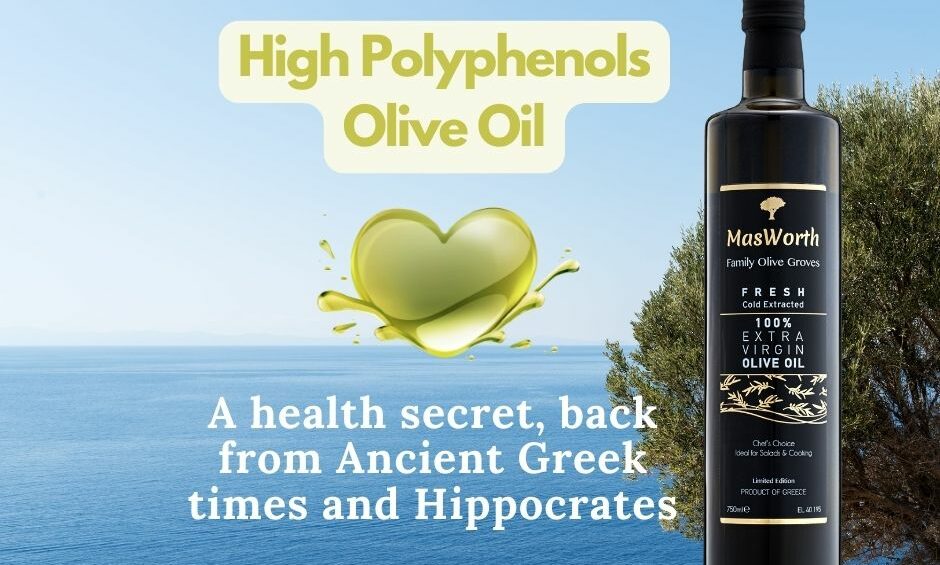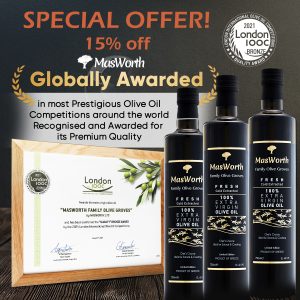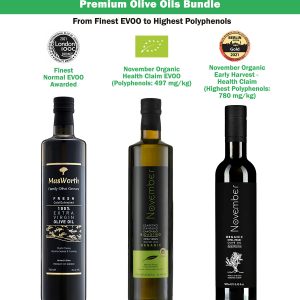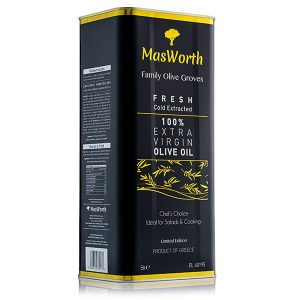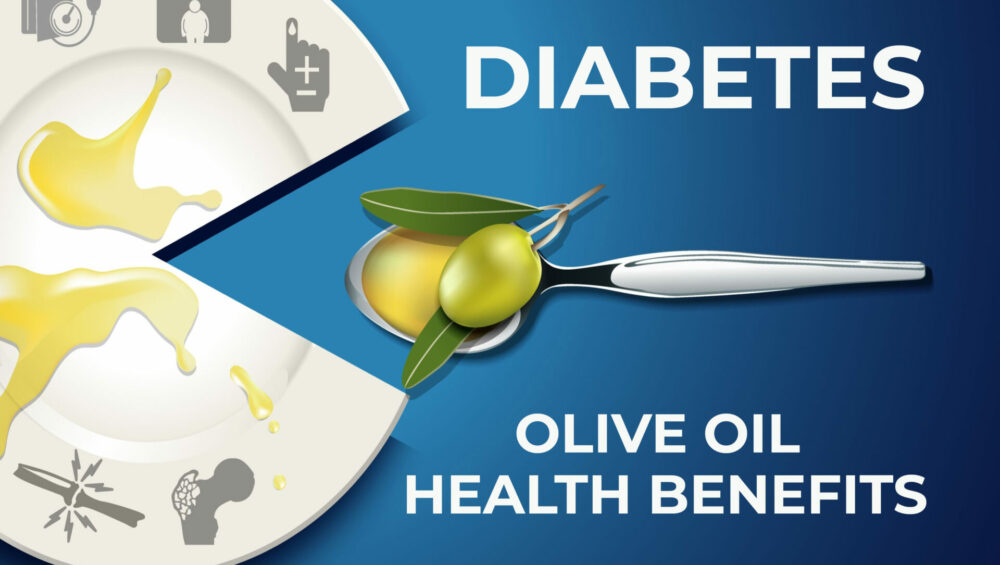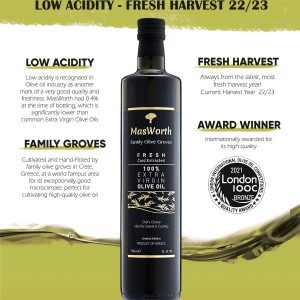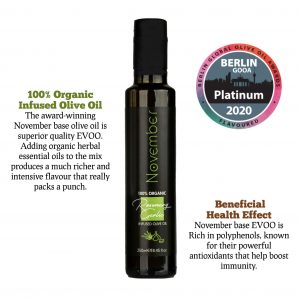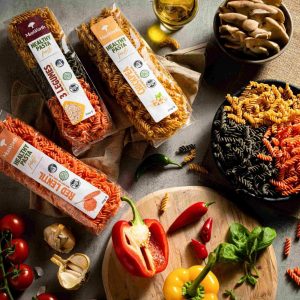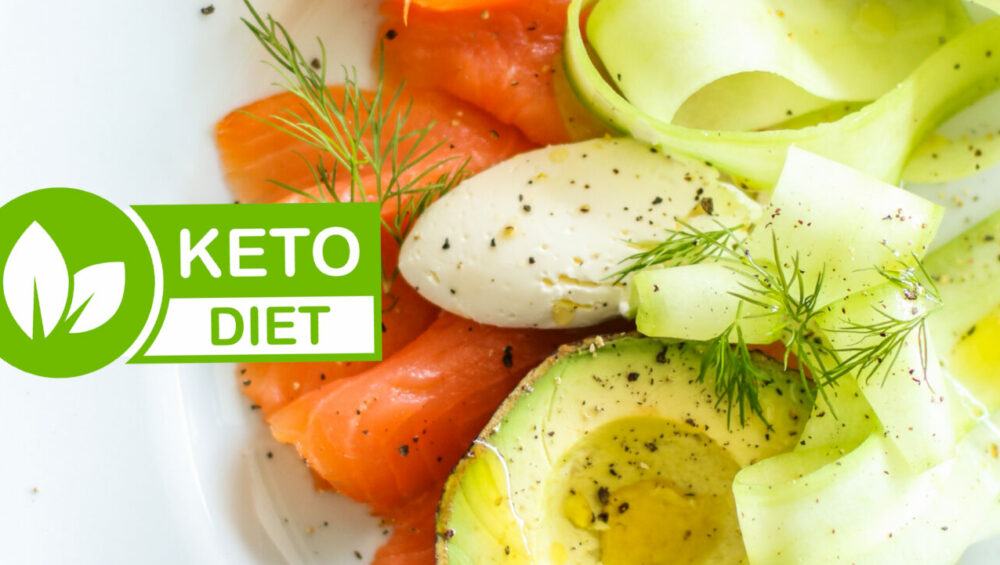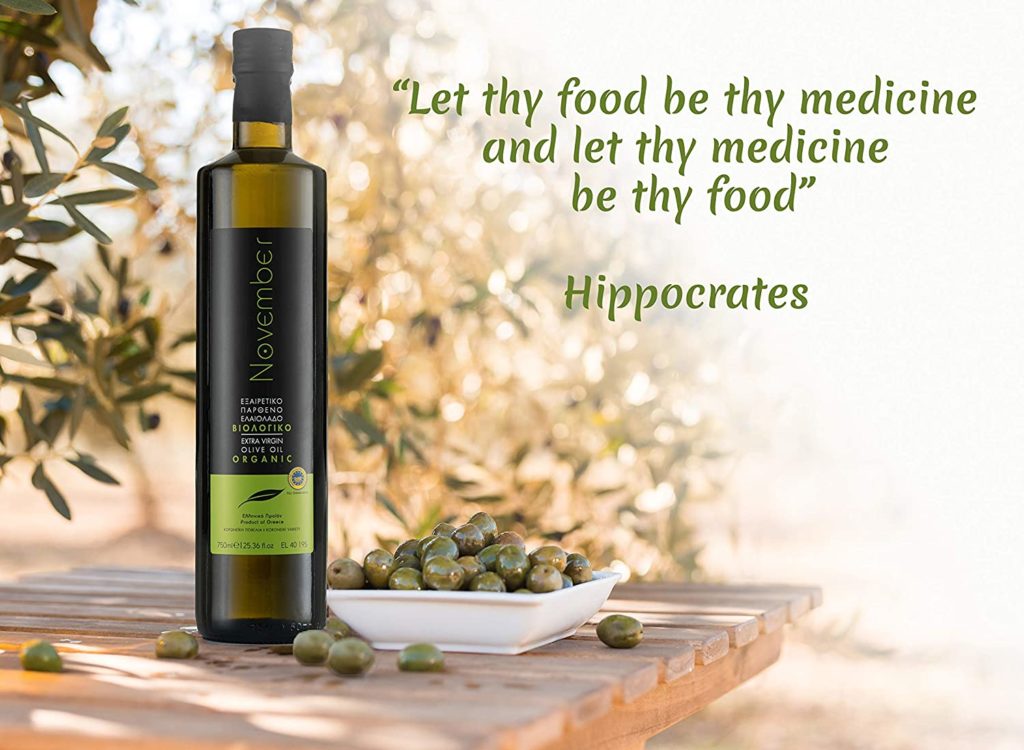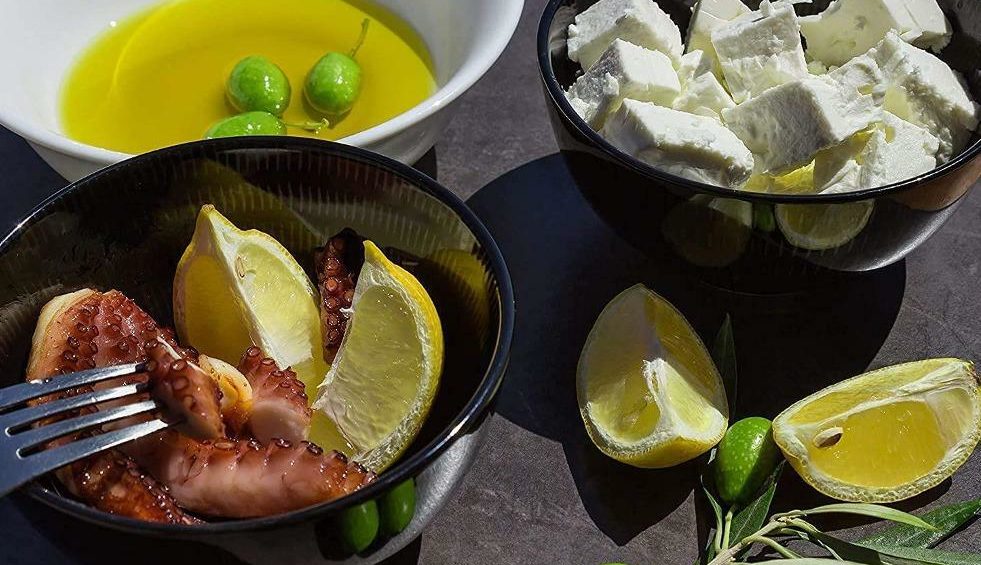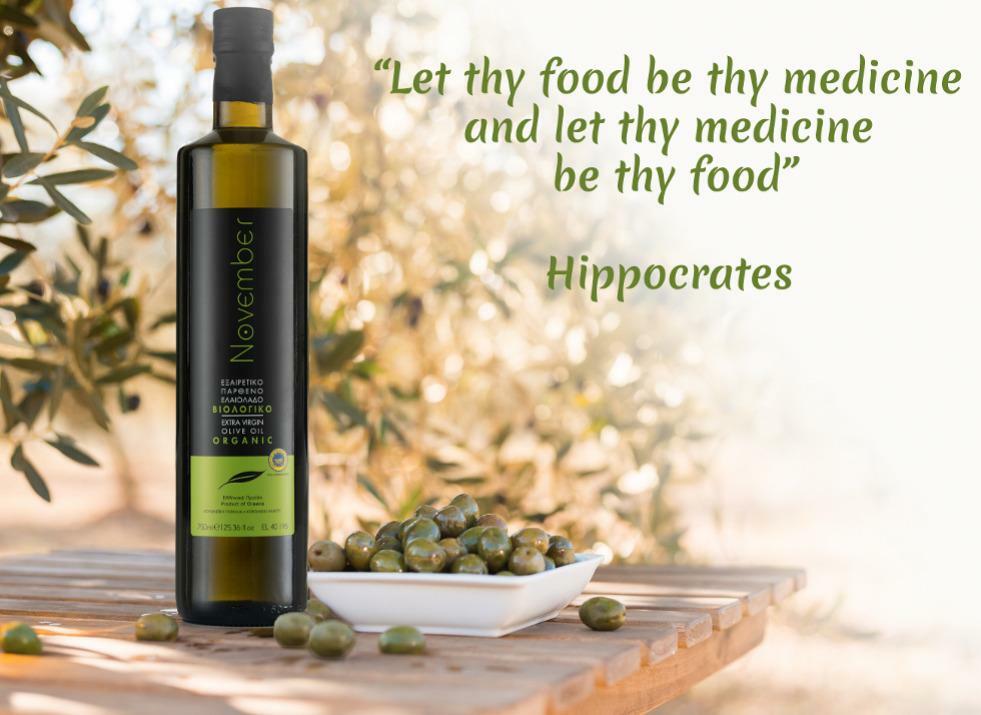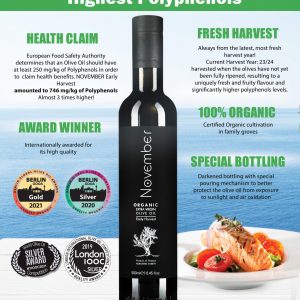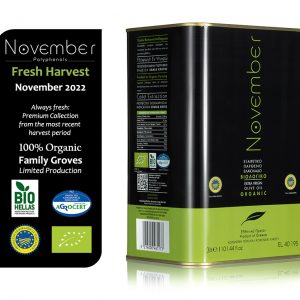High Polyphenol Extra Virgin Olive Oil – the liquid gold
Extra Virgin Olive Oil (EVOO) is widely considered one of the healthiest oils on the market. In ancient Greece, it was referred to as ‘Liquid Gold’ because it was so highly valued for its medicinal and beauty benefits.
EVOO is a monounsaturated fat, which in and of itself makes it a healthier alternative to saturated fats that have been shown to adversely affect certain aspects of your lipid profile and increase your risk of cardiovascular disease.
Monounsaturated fats on the other hand can help reduce bad cholesterol levels in your blood lowering the risk of heart disease and stroke. They also provide nutrients to help develop and maintain your body’s cells as well as being an excellent source of vitamin E.
But there is a special category of premium of olive oils, for which there is plenty of research supporting numerous health benefits offered. These are known as High Polyphenols Olive Oil, Medical Grade Olive Oil, High Phenolic Olive Oil or Health Claim olive oil.
This category of olive oils is rich in some amazing compounds known as Polyphenols and require a very demanding and strict set of natural production procedures compared to mainstream cheap olive oils found in supermarkets (specific olive tree varieties selection, cultivation methods, extraction process, early harvesting, temperature during harvest, type of method used when pressing oils and many other factors).
This production process including early harvesting has a higher production cost as it produces a limited quantity of oil as less juice is extracted compared to fully ripened olives, however, this ensures significantly higher polyphenols than common oils that are recognised by European Food Safety Authority (EFSA – Olive Oil Health Claim EU 432/2012 ) for the important health benefits offered when this type of high phenolic olive oils are consumed regularly.
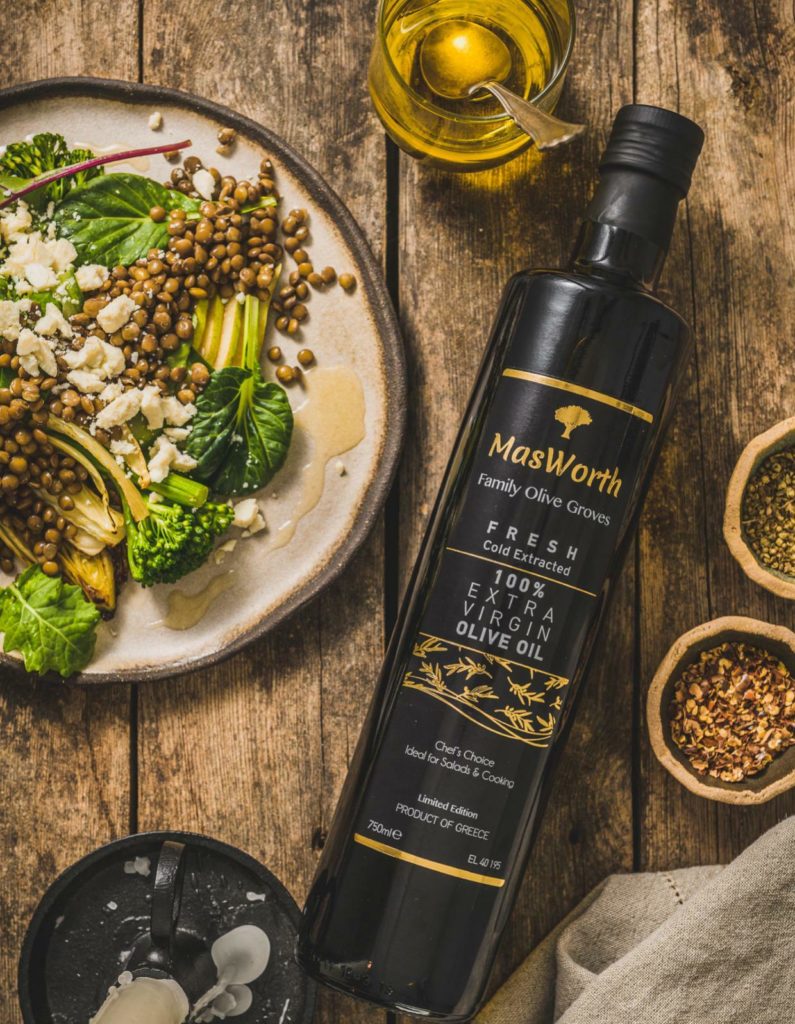
What are Polyphenols and why are they important?
Polyphenols are bioactive compounds found in certain plants that protect the body against the effects of oxidative stress that can lead to heart disease, cancer, diabetes, and some neurodegenerative disorders such as Alzheimer’s.
High Polyphenol Olive Oils contain a higher level of phenolic compounds compared to other olive oils, specifically, HYDROXYTYROSOL, OLEUROPEIN, TYROSOL, OLEOCANTHAL, CAROTENES and OLEACEIN which have powerful antioxidant and anti-inflammatory effects that help fight specific physical and neurological diseases by reversing the damage caused to healthy cells resulting from oxidative stress.
Not all olive oil however is created equal. According to the EU Health Claim Labelling Regulation of 2012, the minimum level of HYDROXYTYROSOL and its derivatives, including OLEUROPEIN and TYROSOL must be at least 5mg per 1.5 tablespoons (20grms) of olive oil for a producer to claim their oil can deliver any meaningful health benefits.
The cost of High Polyphenols - is the Price tag worth it?
Premium high polyphenol EVOO cannot be produced at low cost, so don’t be tempted by low cost olive oil brands.
Production of high phenolic olive oils is of limited scale and as it yields lower quantity of olive oil (but higher levels of healthy polyphenols) it can end up costing multiple times higher to supermarket olive oils.
There are also various other cost elements including the fact that high polyphenol olive oil producers test each harvest batch in independent lab tested at the time of bottling to determine polyphenol levels, which adds to the cost of production. This certification provides consumers with confidence they are purchasing a medical grade oil that could provide them significant health benefits.
Another challenge for producers is to adopt production methods that ensure the polyphenols in the fruit are protected, through the way the trees are cultivated, how the olives are harvested, and the conditions through which the olive oil is extracted and stored, including bottling and transportation.
For example, producers will typically harvest the olives by hand, to ensure minimum damage to the fruit making it a more labour-intensive process. High Polyphenol EVOO is always produced from an early harvest when the olives are still maturing but when the phenol count is at its highest. At this stage, the olives are still firm and difficult to rupture, so the yield of juice that can be extracted from the olives is limited. Olive oil used in the production of high polyphenol EVOO will always be fresh, coming from the most recent harvest and not blended with inferior or older oils and will be cold extracted within hours of being harvested to retain maximum flavour and benefits.
Extraction and storage temperate are also key to protecting the oil, requiring temperature-controlled tanks as well as optimal storage and transportation facilities. Consideration is also given to protecting the oil once purchased so premium high polyphenol EVOO will come in darkened bottles and will often have sealed specialist pouring mechanisms to protect the oil from elemental damage. All these factors combined contribute to the costs of producing high polyphenol EVOO and will have an impact on the price.
When you take account of production costs and the certification process involved one can understand why high polyphenol EVOO sells at a premium price compared to other olive oils. As a rule of thumb, consumers will typically find that the higher the polyphenol content of the oil the more expensive it is because less needs to be consumed, to gain the benefits. However, the value to the consumer largely depends on what they want to use the oil for.
For a delicious range of award-winning medical grade and fresh harvest EVOOs made using Koroneiki Olives from Crete, Greece, visit the premium olive oils section of MasWorth store today.

